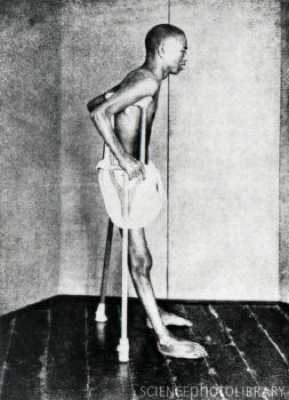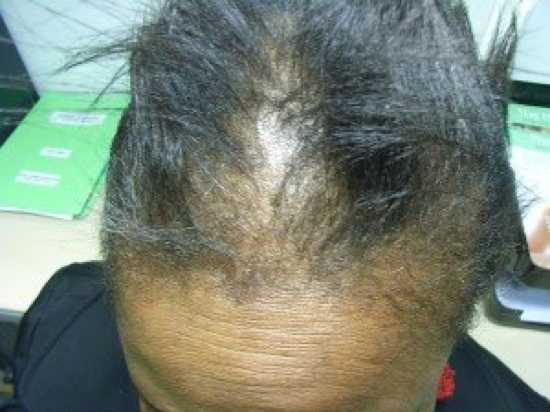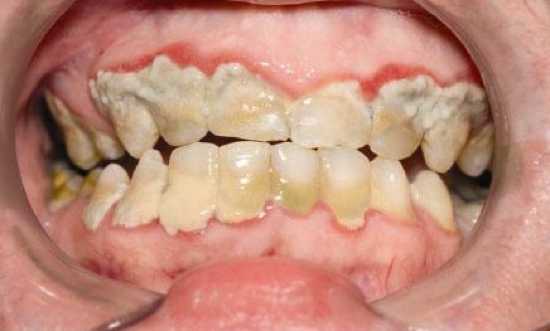 Crime
Crime  Crime
Crime  Movies and TV
Movies and TV 10 Most Influential Fictional Objects in Cinema History
 Our World
Our World Top 10 Real Almost‑Cities That Never Materialized
 Technology
Technology 10 Unsettling Ways Big Brother Is (Likely) Spying on You
 Music
Music 10 Chance Encounters That Formed Legendary Bands
 Space
Space 10 Asteroids That Sneaked Closer Than Our Satellites
 Sport
Sport The 10 Least Credible Superstars in Professional Sports
 Animals
Animals 10 Strange Times When Species Evolved Backward
 Facts
Facts Ten Unexpectedly Fascinating Facts About Rain
 Crime
Crime 10 Dark Details of Australia’s Gruesome Unsolved Wanda Murders
 Crime
Crime 10 Incredible Big-Time Art Fraudsters
 Movies and TV
Movies and TV 10 Most Influential Fictional Objects in Cinema History
 Our World
Our World Top 10 Real Almost‑Cities That Never Materialized
Who's Behind Listverse?

Jamie Frater
Head Editor
Jamie founded Listverse due to an insatiable desire to share fascinating, obscure, and bizarre facts. He has been a guest speaker on numerous national radio and television stations and is a five time published author.
More About Us Technology
Technology 10 Unsettling Ways Big Brother Is (Likely) Spying on You
 Music
Music 10 Chance Encounters That Formed Legendary Bands
 Space
Space 10 Asteroids That Sneaked Closer Than Our Satellites
 Sport
Sport The 10 Least Credible Superstars in Professional Sports
 Animals
Animals 10 Strange Times When Species Evolved Backward
 Facts
Facts Ten Unexpectedly Fascinating Facts About Rain
 Crime
Crime 10 Dark Details of Australia’s Gruesome Unsolved Wanda Murders
Top 10 Vitamin Deficiencies
Until quite recently, the role vitamins play in good health was largely unknown. Explorers in the renaissance found that on ships where they ate salted meat and grain, a huge variety of diseases appeared that were cured by eating a more varied diet. People began to suspect the existence of vitamins, tiny substances which were needed to sustain good health. There have been several Nobel Prizes given to scientists who correctly identified specific vitamins, as they allowed thousands of people to avoid death from deficiencies simply by eating a certain food. Today vitamin deficiencies still occur in developing countries or in those who have restrictive diets, but centuries ago people lived in fear of these deadly deficiencies whose causes were unknown and seemed to affect people at random.

Beriberi is a disease whose symptoms include weight loss, body weakness and pain, brain damage, irregular heart rate, heart failure, and death if left untreated. It was endemic in Asia for a long time. Strangely, Beriberi occurred almost exclusively amongst the richer members of society, and was unknown in the poor. Although recognized to be a nutritional deficiency, doctors were baffled as to why wealthy people with plentiful and clean food would fall victim to beriberi whereas the poor with limited food did not. As it turned out, beriberi is a deficiency of vitamin B1 (thiamine) which is found in cereal grain husks. The rich had been washing their rice so well that they removed the husk with its vitamin B1, whereas the poor did not wash their food as well and consumed enough vitamin B1. White bread can also potentially cause beriberi, so today developed countries add extra vitamin B1 to it. Beriberi is now found mostly in alcoholics whose bodies become poor at absorbing vitamin B1.
Don’t let this happen to you! Buy Nature Made Super B Complex at Amazon.com!

After the discovery and exploration of the Americas, corn was grown by settlers and all around the world. The natives who had originally grown it would treat it with lime, but the taste was unpleasant to the Europeans and they omitted this part of the preparation. As corn was increasingly farmed, the disease pellagra began to spread. Symptoms included diarrhea, dermatitis, dementia, and finally death. Many people believed that corn was in some way toxic, but could not explain the lack of pellagra among native New Worlders. After thousands of deaths, it was discovered that corn, although high in carbohydrates, lacked vitamin B3 (niacin). Farmers would sometimes eat little other than corn and succumb to the deficiency. The Native Americans had actually been using lime as a way of adding vitamin B3. Today it is well known that by eating a variety of foods vitamin B3 is freely obtained and pellagra is easily treated.

Biotin deficiency is caused by a lack of vitamin B7 (biotin). It causes rashes, hair loss, anaemia, and mental conditions including hallucinations, drowsiness, and depression. Vitamin B7 itself is found in meat, liver, milk, peanuts, and some vegetables. Its deficiency is quite rare; however, there was a brief spike in the number of cases when it became popular for bodybuilders to consume raw eggs. One of the proteins found in raw egg white binds vitamin B7 and makes it difficult for the body to use, leading to a deficiency. Cooking egg whites makes this protein inactive. Mild biotin deficiency is also found is about half of all pregnant women due to a higher use of vitamin B7 in their bodies, and supplements are recommended for such women by the World Health Organisation.

Scurvy was first noted among people who spent a long time at sea. Boats would only carry non-perishable foods such as salted meats and dried grain, so sailors ate few if any fruits or vegetables. Scurvy causes lethargy, skin spots, bleeding gums, loss of teeth, fever, and death. Ancient sea-faring civilizations would cure it with various herbs. In more recent times, these ancient cures were not used consistently and their value was not realized. In the 18th century horse meat and citrus fruits were found to cure scurvy, and British sailors consumed limes to the extent that they were nicknamed ‘limeys’. It is now known that these foods contain vitamin C, and in modern times scurvy is rarely fatal as it once consistently was. Today, there are groups who advocate vitamin C megadoses of hundreds of times the recommended daily requirement; although any positive effects have not been firmly demonstrated and harmful overdoses can occur.
Scurvy might be a thing of the past, but there are still plenty of vitamins you might be missing. Buy 8 Vital Dietary Nutrients We Need (And Aren’t Getting Enough Of) at Amazon.com!

Rickets causes muscles and bones to become soft, which can cause permanent deformities in children. It is most common in children and infants who have a poor diet or who are housebound, but is nowadays relatively rare in developed countries. Breast-fed babies are at higher risk if they or their mothers do not take in enough sunlight, and baby formula is now designed to prevent this. Rickets is caused by a lack of vitamin D or of calcium. Vitamin D is required for calcium to be properly absorbed into bones to strengthen them. Adults rarely develop rickets because their bones are not growing and do not need much calcium. Vitamin D itself is obtained from many foods but the body can only use it if it has been converted into its active form via sunlight. In recent years there has been a slight increase in children with rickets possibly due to too many of them staying indoors.

This condition is present mostly in people who suffer from malnutrition and in alcoholics. It causes distinctive bright pink tongues, although other symptoms are cracked lips, throat swelling, bloodshot eyes, and low red blood cell count. Ultimately it can cause comas and death. It is caused by a lack of vitamin B2 (riboflavin), but easily treated by eating foods rich in vitamin B2, including meat, eggs, milk, mushrooms, and leafy green vegetables. Vitamin B2 is also used as artificial orange color in foods. It is absorbed through the liver, so alcoholics might eat enough of it but be unable to use it. True deficiencies are rare, but about 10% of people in developed countries live in a state of slight deficiency, thought to be from a diet of highly processed foods. Constant slight deficiencies can increase the risk of mild health problems.

This deficiency affects nearly half of all newborn infants worldwide. In severe cases it causes uncontrolled bleeding and underdeveloped faces and bones. Many hospitals give newborns vitamin K injections to avoid the more severe symptoms. Unfortunately babies born outside hospitals are statistically at a much higher risk of serious deficiencies. Vitamin K is found chiefly in leafy green vegetables, although human gut bacteria help produce it in humans. Newborns have not yet developed gut bacteria which is why they are so prone to deficiencies. Other than newborns, vitamin K deficiency is found in alcoholics, bulimics, strict dieters, and people with various severe diseases such as cystic fibrosis. Adults who bruise or bleed easily sometimes have vitamin K deficiency which itself may be indicative of one of these more serious disorders.

This mouthful of a disease was first noticed as a symptom of an autoimmune disease. It causes gradual deterioration of the spinal cord and very gradual brain deterioration, resulting in sensory or motor deficiencies. Mental disorders from the gradual brain damage begin as fatigue, irritability, depression, or bad memory. As the disease progresses over several years, psychosis and mania can appear. This damage is irreversible and is caused by a deficiency in vitamin B12. Fortunately, this vitamin is easily found in meat, dairy, and eggs. Vitamin B12 is stored in the liver and can last for years before deficiency sets in. Hypocobalaminemia is most common in developing countries amongst people who eat few animal products. The most at-risk groups in developed countries are vegans, as no plant produces enough B12 for a human diet. Children need much more B12 than adults because they are growing, so infants who are only breast-fed can become deficient and suffer permanent brain damage if their mother is only slightly deficient. Supplements are recommended for people of all diet types as an easy way to avoid the devastation of this disease.

Vitamin B5 is found in nearly every food, and deficiencies are found in people who have been starving, volunteers of particular medical studies, and people on diets restricted to a very small number of foods. A deficiency in vitamin B5 causes chronic paraesthesia. Paraesthesia is most familiar to us as the numbing sensation we feel as ‘pins and needles’ or a limb ‘falling asleep’. This kind of paraesthesia is perfectly normal; however, in vitamin B5 deficiencies it occurs constantly. Malnourished prisoners of war sometimes reported prickling and burning sensations in their hands and feet which is now thought to have been paraesthesia. As this is nearly unseen today, most vitamin supplements do not include B5.

The Ancient Egyptians and Greeks wrote about night blindness, or ‘nyctalopia’. This affliction makes it impossible to see in dim light, and sufferers become completely blind when night falls. The Egyptians found that they could cure sufferers by feeding them liver, which contains high levels of vitamin A, the deficiency of which causes night blindness. Vitamin A deficiency still affects one third of all children on Earth under the age of five, resulting in over half a million deaths each year. Most high dose vitamins obtain their vitamin A from liver, which is dangerous at high levels and can cause various health complications. In the past, starving Antarctic explorers would eat their dogs for food but became sick when they ate too much liver. Vitamin A found in carrots is a slightly different molecule to that found in liver and is not toxic in high doses, although it can cause skin to turn yellow. During the Second World War, the Allies announced that they ate carrots to see well, although carrots only help maintain normal vision and do not improve it beyond this. Actually they were lying to hide their development of radar.








